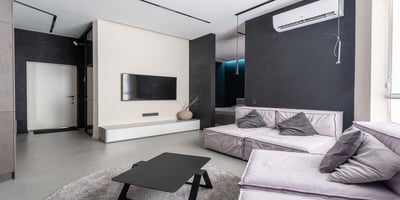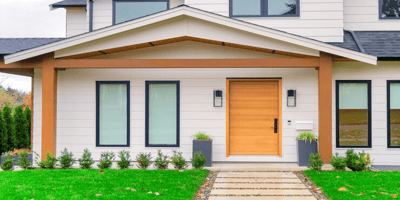10 Main Rules on How to Save on Electric Bill in Summer
It is essential to save money on electric costs since the air conditioners and other appliances require a lot more power in the summer. High power use and high bills could make family budgets easier. Reducing energy use will not only save money but also decrease the demand on the power grid, which can decrease the chance of blackouts. Reducing electricity use will also decrease greenhouse gas emissions, making the earth healthier. Two benefits of reducing energy use by using less energy are promoting global sustainability and saving money at the same time.
Rule 1: Appliances That Require Less Energy to Use
When you get an energy-efficient appliance, you will find that these appliances save a lot of money on a power bill. Energy-star appliances do the same things that a regular appliance does but more efficiently and with less power. This makes them much better for the earth because they release fewer greenhouse gases. Many products that use less energy have advanced features that make them work better and last longer.
Examples of summer appliances that use less energy:
- Use air conditioners that use less energy: Look for units with a high Seasonal Energy Efficiency Ratio (SEAR) score. These types of ACs cool your home well without using a lot of electricity.
- Fans that use less energy: Choose fans with an Energy Star grade. These fans use advanced technology to move air around more efficiently.
- Energy-efficient refrigerators: New refrigerators with the Energy Star label use less electricity, keeping food cold without raising energy bills.
Rule 2: Appropriate Thermostat Settings
If you need to cool your home during the summer, set the temperature at 78°F (25°C). While you are out of the home, increase the temperature to at least 85°F (29°C). This compromise maintains a comfortable atmosphere within the home and saves energy.
Homeowners use programmable thermostats to preset temperature plans based on how they spend their day. The thermostat can, therefore, be programmed to change temperature settings while you are away from a location to save on energy without loss of comfort. Other, more advanced thermostats can even be controlled remotely via the use of apps on your phone to increase your control over the temperature and energy settings in your home.
Rule 3: Keep your HVAC System in Good Shape
Your HVAC system needs to be regularly maintained to operate well and do its job quickly. A well-maintained HVAC system lasts longer, uses less energy, and cools better. Systems that need to be taken care of will break down, require more energy, and raise your bills.
How to clean and fix the air conditioners?
- Replace or clean your air filters: When filters are dirty, they block the airflow, which makes your system work harder. Clean them or replace them every 1 to 3 months.
- Clean and check the coils: Dirty coils cannot absorb heat as effectively. Clean your coils at least once a year.
- Check and clean ducts: Dirty or leaking air ducts in the house waste a lot of energy. Fix the leaks and clean the pipes to make them work better.
- Professional maintenance: Call an HVAC professional every year to get your HVAC system checked and repaired so all the parts are in good condition.
Rule 4: Let Air Flow Naturally
Using air from outside to cool your home is called natural airflow. Natural airflow means you don't need as much air conditioning. This way can work really well, especially in the early mornings and evenings when it's cooler, and it helps move fresh air around your home.
Opening windows at night and using cross-ventilation:
- Open windows at night: When it gets warmer outside in the evening, open the windows. This lets cool air in and hot air out, naturally lowering the temperature inside.
- Use cross-ventilation: Cracking open windows on opposite sides of your home will allow more air into it. Cross-breezes will be created, effectively cooling your living areas. Intelligently placed fans near windows can make this effect even stronger by pulling in cool air and pushing out warm air.
Rule 5: Keep Your Home Out The Sun
Shades, blinds, and curtains are among the better ways to keep a home from getting too hot. Window treatments block direct sunlight. This helps keep your home cooler by keeping direct sunlight out, meaning your air conditioner has to work less, saving you money on your energy bills.
Use window films or solar screens to reduce heat gain:
- Window films that reflect light can be fitted directly to your windows, reducing glare and heat from the sun. This will make your home cooler, and your cooling system won't need to work as hard.
- Solar screens are designed to keep out heat in your home by stopping and absorbing it. They work best on the south and west sides of your house, where there's maximum sunlight coming in.
Rule 6: Lights Must Give Off Less Heat
An incandescent light heats a filament so that it glows. This process produces a lot of heat, so your house might get warmer. Your air conditioner will have to work harder and use more power because of this.
Move to LED or CFL bulbs because they use less energy and heat:
- LED Lights: Light-emitting diode (LED) bulbs use much less energy and give off much less heat than regular lights. They are a better way to light your home because they last longer and cost less.
- CFL Bulbs: Compact fluorescent lamps (CFL) use less energy and produce less heat than incandescent bulbs. They are a good alternative if you are transitioning to more energy-efficient lighting options.
Once you switch to LED or CFL lights, they use less power and give off less heat. Your power bill will go down, and your house will be more relaxed in the summer.
Rule 7: Be Smart About How You Cook
When you cook, you need an oven or stove, which raises the temperature inside by a lot because they produce a lot of heat. Because of the extra heat, your air conditioner has to work harder to keep the temperature comfortable. This uses a lot of energy, which raises your power bill.
Use a microwave, slow cooker, or outdoor grill instead of the oven:
- Remove the oven and put in the microwave instead. Microwaves are better than regular ovens for cooking in the summer because they use less power and heat up less.
- Crockpot: A crockpot is another great choice. Since crock pots use less electricity, they produce less heat. You can cook a lot of different foods in them without making your house too hot.
- Use a grill outside. When you use a grill outside to cook, the heat stays outside and doesn't change the temperature inside. Plus, it keeps your house cooler and gives you something fun to do in the summer.
Rule 8: Put Fans in The Ceiling
Ceiling fans can cool your house by moving the air around. The wind makes you feel calmer, not the room itself. Running your ceiling fans at the same time as your air conditioner will get the most use out of them.
Change fan direction in summer (Counterclockwise):
- In the summer, you should make sure that your ceiling fans spin backwards. This method slows the airflow, which is nice because it creates a cool breeze.
- If you have ceiling fans, you can raise the temperature by about 4°F without feeling any warmer. These fans will help you save a lot of power. Fans are incredible, so remember to turn them off when you leave. You can make your home cooler and lower your summer electric bill by using ceiling fans wisely and turning them on the right way for the season.
Rule 9: Keep Your Home Warm and Dry
To make your home more energy efficient, you need to seal up holes and insulate it. Warm air can get in, and cool air can leave through gaps and poorly insulated areas. This makes your air conditioner work harder to keep the temperature comfortable, which not only uses more energy but also increases your power bills. Using the proper seals and insulation can help keep the temperature inside stable, which makes things more comfortable and saves money on energy costs.
How do you seal window and door frames against the weather and insulate walls and attics?
- Weather-stripping windows and doors: To stop air leaks, put weather stripping around windows and doors. This easy and cheap step can reduce energy waste significantly. To close gaps, you can use V-strips, foam tape with a sticky back, or door sweeps.
- Building up attics and walls with insulation: Attics and walls must have the right insulation for a stable room temperature. Use fibreglass, foam board, or spray foam insulation to cover places where heat can move. Most of the heat that comes into your home comes through the attic, so make sure it's well-sealed.
- Fill in cracks and gaps: Find any cracks or gaps around your windows, doors, and other openings on the outside of your home and close them up. Fill these holes with caulk or expanding foam to stop air from leaking out.
Rule 10: Put Smart Home Technology to Use
Smart home technology improves your energy control. Gadgets can automate and optimize your home's energy use, saving you money on your power bills and making your life easier and more comfortable.
Examples:
- Smart plugs: With smart plugs, you can use apps on your phone to control your tools from afar. They are great for the control of fans, lights, and other small tools in your house.
- Energy monitors: Energy monitors help you know how much energy your household consumes at any given time. They also help you find devices that consume a lot of energy so that you can make intelligent decisions about using less energy.
- Home automation systems: Full home automation systems integrate various smart gadgets into one platform. They allow you to control your lighting, thermostat, and even home protection to use the best amount of energy in a manner that suits your lifestyle and preferences. Features such as remote access, automated scheduling, and usage analytics make it easy to manage your home to keep it energy-efficient.
If you follow these ten rules, you will be able to keep your house cool, save power bills this summer by a considerable amount, and at the same time be energy-efficient. These methods save you not only money right away but also support living a sustainable, eco-friendly life. Implement these tips right away to make your home cooler and save money on your energy bills.


































.jpg)

.jpg?height=200&name=photo_2024-05-14_19-52-55%20(1).jpg)
.jpg?height=200&name=beautiful-shot-fabulous-autumn-scene%20(1).jpg)
